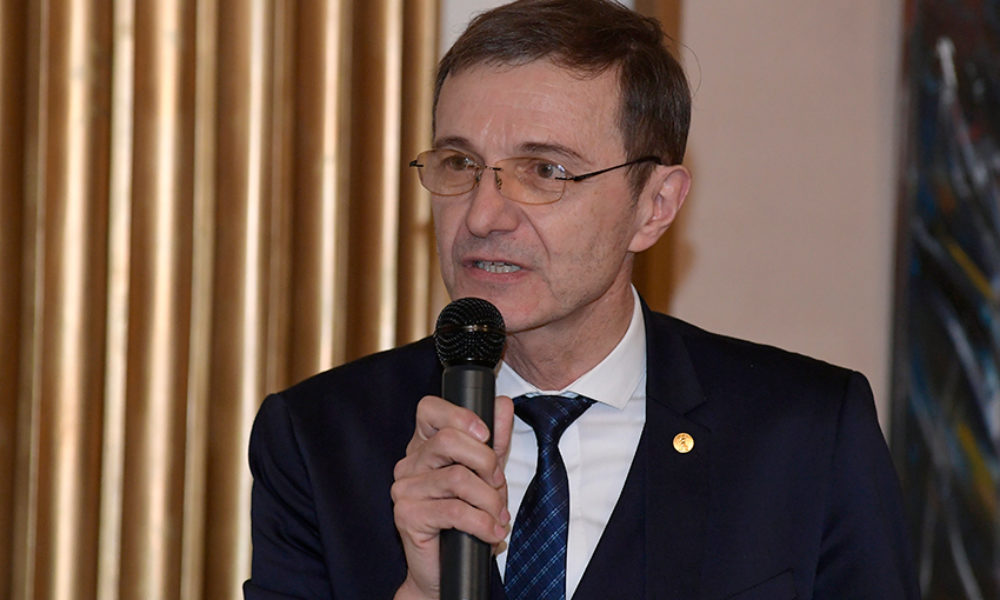« The student who has nothing in his own head reaches an instrument »

The president of the Romanian Academy, the historian Ioan-Aurel Pop, lamented, on Wednesday, the absence of reading in the Romanian School.
The student who has nothing in his own head and is based exclusively on those knowledge accumulated in the artificial databases becomes an instrument, a docile element available to the opinion trainers. These students and young people can only think with their own minds, possibly, in narrow issues related to a certain specialization. The social and political issues remain foreign to them, which makes them easily manipulable, « the academic stressed.
‘Today, reading has become, unfortunately, Rara Avis in the Romanian School. Students do not see in the book an instrument of knowledge, no opportunity to escape from everyday life, that they escape by other means, and not even a method of entertainment.
Any type of measurements we do, it indicates to us to remove the book of students and students, that is, the decline of reading. There are teenagers who arrive in the first year of study and I admit, it happened to me personally, that they have never read a novel to the end, that I do not love poetry, that I do not know what that dramaturgy is.
Of course, there are many explanations. The Internet overwhelmed our lives, and mobile phones took the place of books. The new technology does not favor the static visual image at all, as is the book tab, and neither the ideas, (…) but only the moving images, the clips, the videos, which pass quickly, but I dizzy and give you the impression that you know everything, that you remember everything. In fact, this is an illusion.
The real opposition is not between the book printed on paper and the digital book, nor between the classic library and the virtual library, but between the thorough reading and the superficial reading or the lack of reading ‘, said Pop, at an anniversary session dedicated to 130 years since the establishment of the’ Carol I ‘University Foundation.
He pleaded for reading and library
‘I also say paraphrase Heliade Rădulescu, the first president of the Academy:’ Read boys, only read ‘. Without reading we become deaf and blind. We immerse ourselves in ignorance and expose ourselves to these manipulations of all kinds, we lose our human essence. In order to remain people, we must read as much as possible and go to libraries that are the storage of teaching, « said Ioan-Aurel Pop.
The absence of the program of the faculties of history of the disciplines that can lead to the penetration of the mysteries of the old documents (…) – epigraphy, paleography, diplomatic, numismatic, sigilography.
‘Unfortunately, we lose this dowry, today, in my opinion, not in the sense that it no longer exists – we strive to keep it, but in the sense that we refuse it. Of course, the messages sent through the old writings do not reveal themselves by themselves. They can be deciphered and interpreted after a long specialized training, usually made in the history faculties. The disciplines that can lead to the penetration of the mysteries of the old documents are called, as you know, epigraphy, paleography, diplomatic, numismatic, sigilography. For the territory of Romania and for the Romanian Middle Ages, the preparation in Latin, Slavic, Romanian-Chiliric, Turkish, German, German, Hungarian is fundamental. If the preparation is no longer done in these fields, the springs regarding the Romanian past remain buried in oblivion, « stressed the historian.
Currently, only 10% of the one million records in the unknown or just reported, vaguely known, undeciphered and unsecured about the history of Transylvania are known.
‘I give you an example: the official sources of Transylvania, those that came out of the chancellors, are elaborated in the Latin from the eleventh century until 1842, when Latin ceased to be the official language of the Transylvanian country, centering the place of the Hungarian language, towards the great dissatisfaction of the Saxons and the Romanians. It is appreciated today that there are over one million unknown or just reported, vaguely known, undeciphered and unavoidable, in the country and outside the country. We know today from the Latin dowry that concerns us about 10%, but the faculties of history, by the lack of attention of the state, no longer give time to the preparation in these specialties, apparently narrow, but that could help us to understand our past. If 10% of it knows it, you can figure out to what extent it expresses the essence, « added the president of the Academy.
World Book and Copyright Day is marked annually on April 23, starting with 1996. It is a UNESCO initiative, in order to promote books and reading pleasure, according to https://en.unesco.org/commemorations/worldbookday. Throughout the world there are socio-cultural manifestations regarding reading and books-a connection between the past and the future, a bridge between generations and between cultures.







